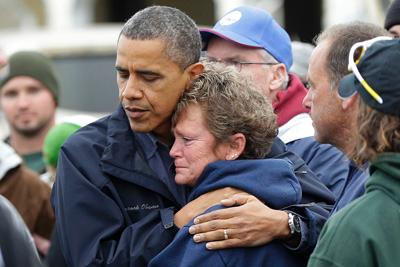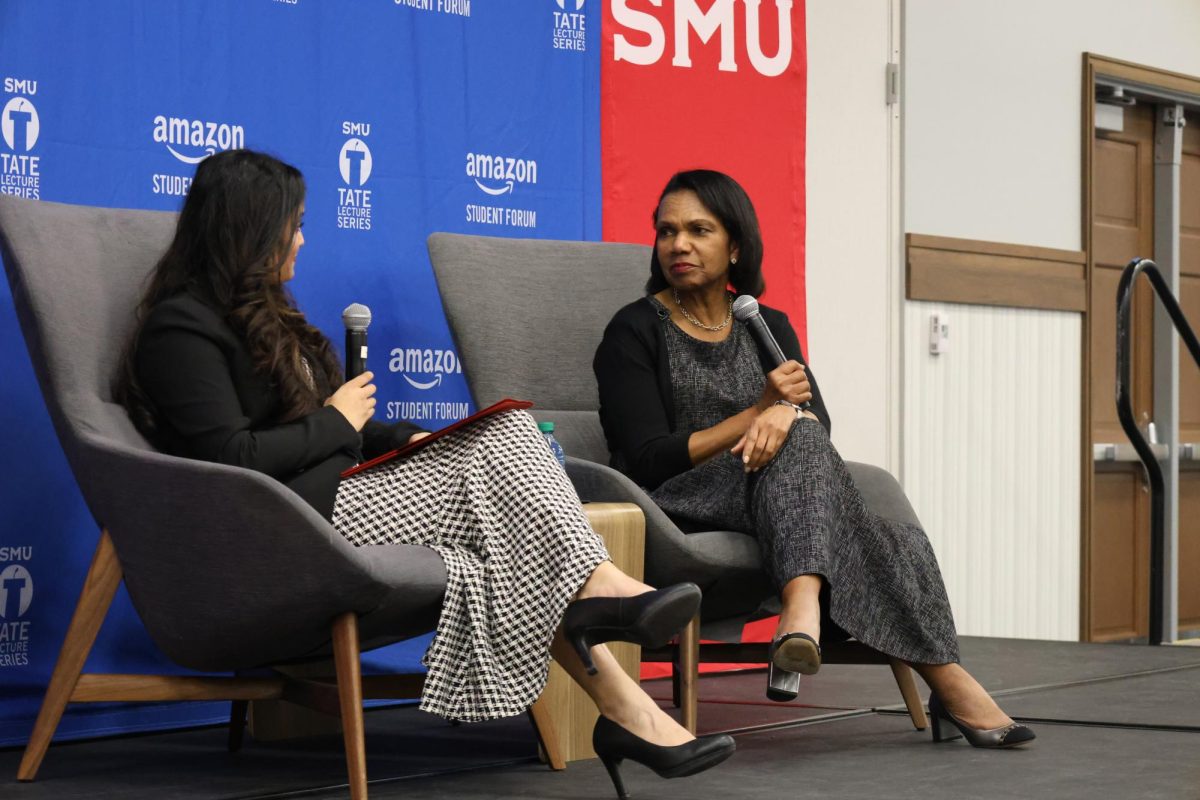
President Obama and Gov. Christie met with Sandy victims Wednesday. (Sidney Hollingsworth/The Daily Campus)
The 2012 presidential elections are only a weekend away, and both candidates are preparing their final push to sway voters before ballots are cast on Tuesday.
With the series of debates ending only two weeks ago, both candidates are in the final part of their campaigns in the aftermath of Hurricane Sandy. President Barack Obama and Gov. Mitt Romney have reached a final stretch during which they can do little other than watch what unfolds.
“The election is very close,” Cal Jillson, a political science professor at SMU, said. “It still seems to be advantage Obama because he is leading in the swing states.”
The fragile balance of advantage between the candidates is what causes the outcome of the election to lean one way, and ultimately shift at any time. Jillson explained that while Obama is expected to win the re-election, national polls still put Romney ahead one point.
“That’s quite an advance for [Romney] the first debate brought his back to even,” Jillson said.
After the close of the debates last week, voters had time to absorb and examine the opinions presented by each presidential candidate. Despite predictions for re-election, Jillson said Obama’s showing was not as strong as Romney’s showing.
“Looking at the four debates together, they worked to Romney’s advantage,” he said.
The presidential candidates sparred three of the four debates, and Jillson explained that the vice presidential debate was able to “stop the bleeding after Obama’s poor first debate performance.”
“After that [VP debate] Obama came back and did better, narrowly winning the last two debates,” Jillson said.
SMU political science professor Matthew Wilson, a colleague of Jillson, agreed that the debates gave Romney a needed boost, even if Obama made a comeback in the last two.
“[The debates] are the reason that [Romney] has a chance to win on Tuesday,” Wilson said.
However, when commenting on the most recent events of the last few days, Wilson said that Hurricane Sandy has actually been “a bit of a boost” to President Obama as he “gets to play the national unifier role.”
Wilson explained that while Obama had the opportunity to “be seen taking care of people,” it could hurt Romney’s final chances.
“Romney had to scale back the campaign and virtually go off the air for a few days,” Wilson said.
Beyond questions surrounding FEMA and government responsibility in disaster response, Jillson explained that the question for voters now rests on whether they want to see continuation or change.
“The big choice here is between whether to continue the Obama program from the first term or to turn policy back over the Republicans,” he said.
Jillson said that Obama “has not been clear about his second term agenda” and explained “the reason for that is big budget deficits that have to be brought down.”
Beyond America’s economy, the healthcare system has and will be at the forefront of voters’ minds at the polls. Jillson said that if Obama is awarded a second term, his re-election will solidify his healthcare reform. Romney winning the vote will lead to the opposite.
“If Romney is, in fact, elected,” Jillson said, “he will try to take apart Obamacare and generally stop its implementation.”
Junior Amelia Johns also shared her commentary in the days before the elections. She said that the debates solidified some of the choices she had made about both candidates, seeing the importance of being an educated voter and “fact-checking.”
“I think it is in all of our best interests to know the facts before we make any definite decisions about either candidate,” Johns said. “That is being politically active.”
Johns echoed the sentiment of many SMU political science professors and professionals across the country that youth voters are imperative to the future of the country. Aside from being “a total landmark in terms of women’s reproductive rights,” the 2012 elections hold significant importance in several other policies affecting individual rights.
“For all of us, this election impacts our healthcare, our ability to pay for college and our access to true equality,” Johns said.
Elections will take place Tuesday, Nov. 6.














